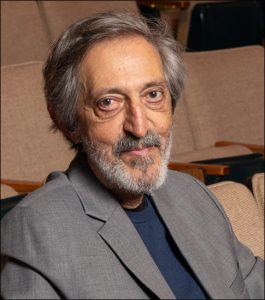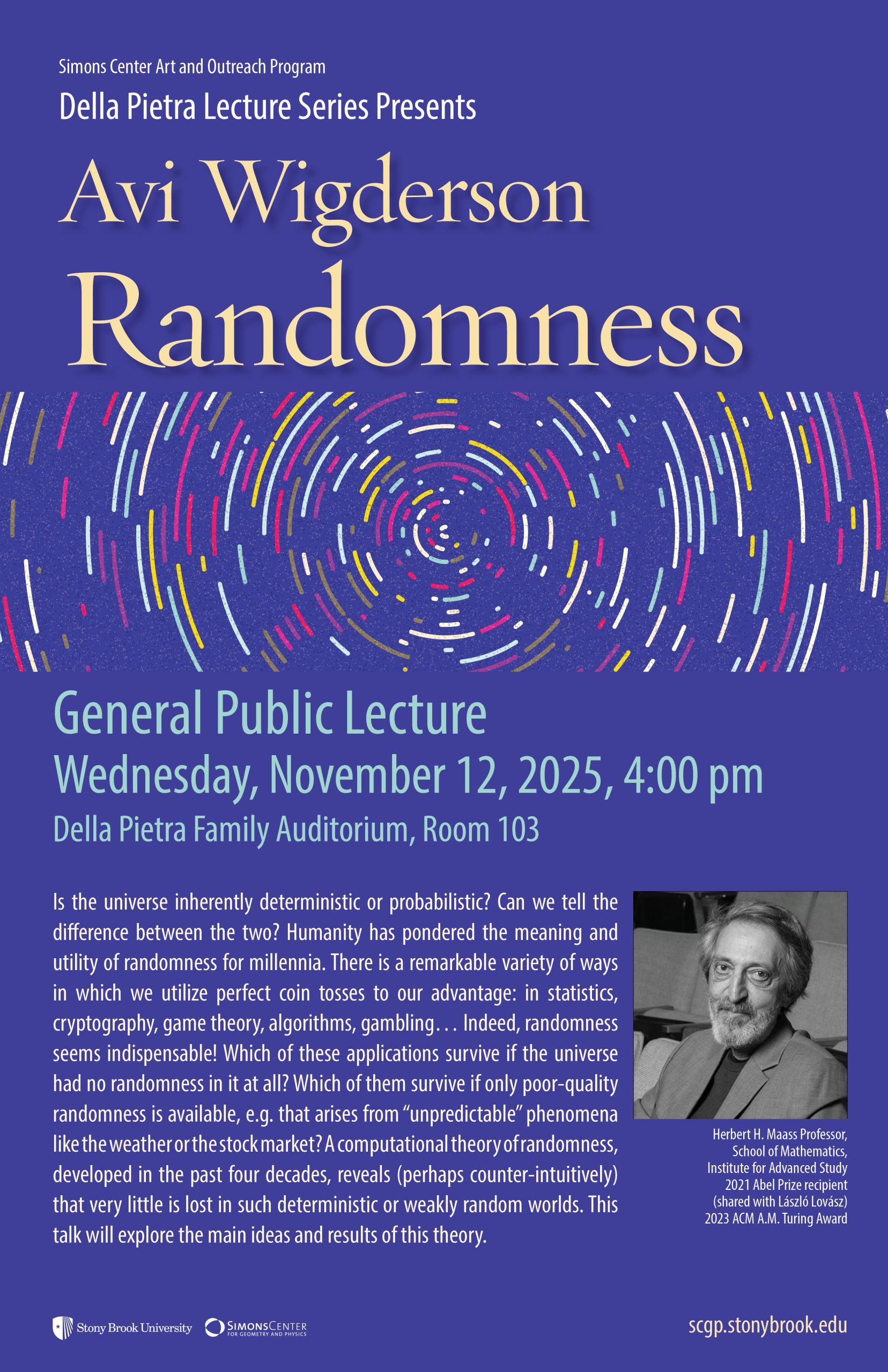General Public Lecture
Wednesday, November 12
Lecture at 4:00pm, Della Pietra Family Auditorium – 103
Wine and cheese reception, 5:00pm, Simons Center lobby
Following the lecture and reception, there will be a public concert by violinist Colin Carr and pianist Kyungwha Chu. More information can be found here: scgp.stonybrook.edu/archives/46958
Title: Randomness
Abstract: Is the universe inherently deterministic or probabilistic? Perhaps more importantly – can we tell the difference between the two? Humanity has pondered the meaning and utility of randomness for millennia. There is a remarkable variety of ways in which we utilize perfect coin tosses to our advantage: in statistics, cryptography, game theory, algorithms, gambling… Indeed, randomness seems indispensable!
Which of these applications survive if the universe had no randomness in it at all? Which of them survive if only poor-quality randomness is available, e.g. that arises from “unpredictable” phenomena like the weather or the stock market?
A computational theory of randomness, developed in the past four decades, reveals (perhaps counter-intuitively) that very little is lost in such deterministic or weakly random worlds. In the talk I’ll explain the main ideas and results of this theory.
This talk is designed for a general audience and will be streamed live at scgp.stonybrook.edu/live
 Avi Wigderson is the Herbert H. Maass Professor in the School of Mathematics at the Institute for Advanced Study (IAS). He earned his B.Sc. in Computer Science from the Technion in 1980, followed by a Ph.D. in Computer Science from Princeton University in 1983. After completing postdoctoral positions at UC Berkeley, IBM Research, and the Mathematical Sciences Research Institute (MSRI), he joined the Computer Science Department at the Hebrew University in 1986. In 1999, Wigderson became a faculty member at IAS, where he also founded the Computer Science and Discrete Mathematics program. His research spans a wide range of areas, including computational complexity theory, algorithms and optimization, randomness and cryptography, parallel and distributed computation, combinatorics, and graph theory, as well as connections between theoretical computer science, mathematics, and other scientific fields. Wigderson’s influential work has earned him numerous honors, including the 2021 Abel Prize (shared with László Lovász) and the 2023 ACM A.M. Turing Award, recognizing both his foundational contributions to the theory of computation and his decades of intellectual leadership in the field.
Avi Wigderson is the Herbert H. Maass Professor in the School of Mathematics at the Institute for Advanced Study (IAS). He earned his B.Sc. in Computer Science from the Technion in 1980, followed by a Ph.D. in Computer Science from Princeton University in 1983. After completing postdoctoral positions at UC Berkeley, IBM Research, and the Mathematical Sciences Research Institute (MSRI), he joined the Computer Science Department at the Hebrew University in 1986. In 1999, Wigderson became a faculty member at IAS, where he also founded the Computer Science and Discrete Mathematics program. His research spans a wide range of areas, including computational complexity theory, algorithms and optimization, randomness and cryptography, parallel and distributed computation, combinatorics, and graph theory, as well as connections between theoretical computer science, mathematics, and other scientific fields. Wigderson’s influential work has earned him numerous honors, including the 2021 Abel Prize (shared with László Lovász) and the 2023 ACM A.M. Turing Award, recognizing both his foundational contributions to the theory of computation and his decades of intellectual leadership in the field.


